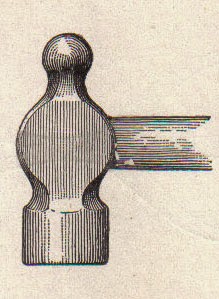Is your doctor a hammer and you’re a nail? Here’s some insider’s advice coaxing patients to be more wary and skeptical of medical advice. Should you trust your doctor? Absolutely. But you need to serve as a spirited advocate for your own health or bring one with you. Ask your physician for the evidence. Sometimes, his medical advice may result more from judgement and experience as there may not be available medical evidence to guide him. Make sure you have realistic expectations of the medical out me.
Is your doctor a hammer and you’re a nail? Here’s some insider’s advice coaxing patients to be more wary and skeptical of medical advice. Should you trust your doctor? Absolutely. But you need to serve as a spirited advocate for your own health or bring one with you. Ask your physician for the evidence. Sometimes, his medical advice may result more from judgement and experience as there may not be available medical evidence to guide him. Make sure you have realistic expectations of the medical out me. And most importantly, try as best you can to verify that the proposed solution is targeted to your problem.
Is Your Doctor a Hammer?
Consider a few hypothetical scenarios:
A 66-year-old patient has chronic right lower back pain. Physical therapy has not been helpful. Radiological studies show a moderate amount of hip arthritis. A hip replacement is flawlessly performed. The orthopedist discharges the patient from his practice. The pain is unchanged.
A 60-year-old patient has chest pains that are not typical for angina. Her internist arranges a stress test and the results are equivocal. A cardiologist performs a cardiac catheterization and a moderate narrowing is found in an artery. A stent is successfully placed in the proper location. The patient is reassured that her cardiac pipes are all wide open. She returns to see him a month later wondering why the pains have continued.
A 50-year-old patient sees his gastroenterologist for stomach pain. An ultrasound confirms the presence of gallstones. The patient accepts the specialists advice to have his gallbladder removed. The operation proceeds smoothly. You can guess the rest.
This is not meant to serve as an indictment of the medical profession. The examples above have been highly simplified to make a point. First, making accurate diagnoses are complex undertakings that can frustrate even seasoned diagnosticians. Patients’ medical histories are often vague and evolving. Many diseases and conditions have clever mimics that can lead doctors astray. Every doctor can regale you with anecdotes detailing episodes when they have been fooled. There isn’t a medical doctor alive who hasn’t fumbled over a case of chest pain.
Just because medical advice doesn’t lead to the desired outcome, doesn’t mean that the advice was wrong. I concede, of course, that bad medical advice can cause adverse outcomes, a self-evident statement.
Despite the vagaries and uncertainties in the medical arena, physicians try as best we can to propose a remedy that is directed to your symptom, rather than serve as a fix for something that is not ailing you. My advice to patients is that when your doctor is raising the healing hammer, is to try not to get nailed.
Make sure this inquiry is in your tool box: “Doctor, can you please explain why the treatment will cure the symptom that brought me to you in the first place?”
Maybe a hammer is the right tool for you. Without doubt, the time to have this conversation is in advance of pulling the treatment trigger. Having realistic expectations can prevent future frustration when a treatment doesn’t bring you to the end zone.
So, next time your physician proposes a plan of action, hammer away.

